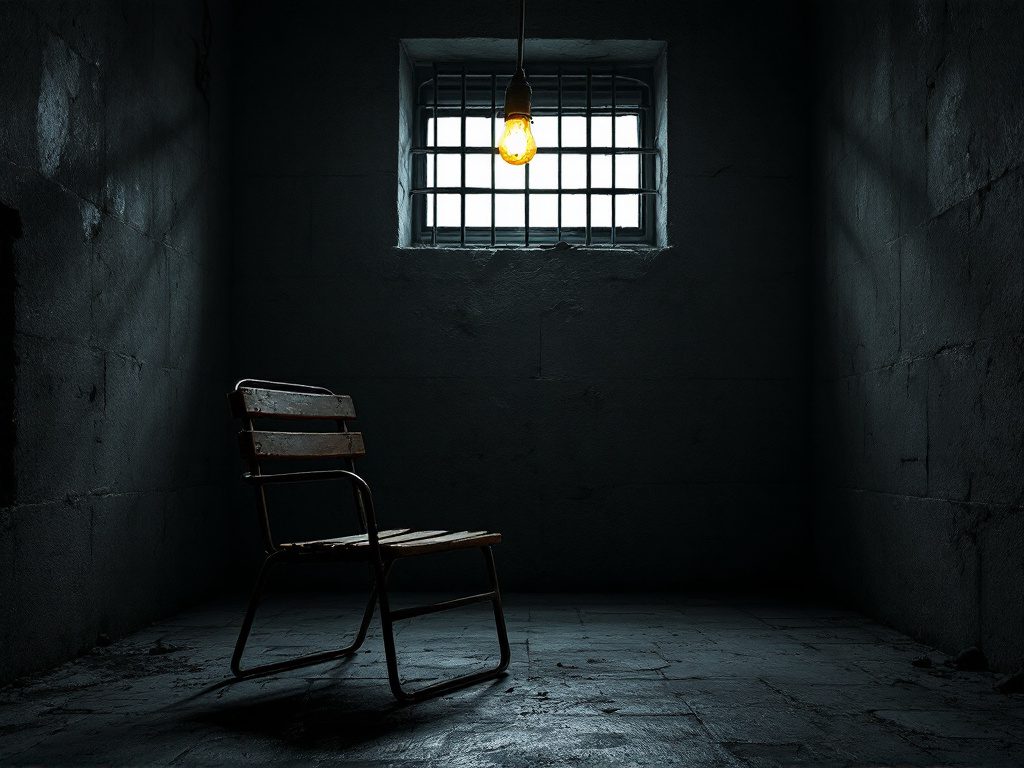The Relentless Machinery of Death Row in Mississippi
On June 25, the bright lights and iron bars of Mississippi State Penitentiary will set the stage for a moment decades in the making: Richard Gerald Jordan, the state’s oldest and longest-held death row inmate, will face execution after 48 years behind bars. It is both a uniquely American story and a dark marker in the nation’s tortured history with capital punishment—a history enmeshed with questions of justice, mercy, and the haunting specter of error.
Jordan, now 78, was convicted in 1976 of a chilling crime: kidnapping Edwina Marter under the guise of a utility worker, demanding ransom from her husband, and ultimately murdering her. He was sentenced to death during an era when the entire foundation of capital punishment was in judicial flux. Just a few years prior, the U.S. Supreme Court had struck down all death penalty statutes in Furman v. Georgia (1972); by 1976, executions had resumed, yet legal ambiguities persisted. Jordan’s own appeals would hinge on questions about these legislative and constitutional limbos—arguments most recently and definitively dismissed in October 2022.
Beyond the individual case, Jordan’s looming execution poses urgent, uncomfortable questions. Why, after nearly half a century in a 6-by-9-foot cell, do we summon the machinery of death? What does society gain from carrying out a punishment so long delayed? Justice, or simply vengeance on a schedule?
A Veteran’s Fall, a System’s Inflexibility
In a detail that rarely surfaces in the official record, Jordan is a Vietnam War veteran—a fact that complicates the narrative of pure villainy often projected onto those condemned to die. According to court documents reviewed by the Associated Press, Jordan returned from war to a nation unprepared to recognize or treat post-traumatic stress disorder. His attempts at civilian life collapsed under the weight of trauma and mental illness—an echo of the challenges that still plague returning servicemembers today.
Harvard psychiatrist Dr. Judith L. Herman has long argued that PTSD can blunt moral reasoning and drive individuals toward desperate acts. Yet, as in so many other death penalty cases, Mississippi’s justice system made minimal provision for weighing trauma in sentencing or appeal. Even as Jordan’s attorneys pressed these issues in federal courts, the system steamrolled onward.
This stubbornness typifies a much larger pattern. As Pew Research Center data shows, public support for the death penalty has eroded, reaching near-historic lows. Thirty states have not carried out an execution in over a decade. The argument for capital punishment as a deterrent has faltered in both scholarship and practice: states without the death penalty consistently report lower homicide rates, as highlighted in a recent report by the Death Penalty Information Center.
“Carrying out an execution nearly half a century after sentencing doesn’t serve victims, doesn’t serve justice, and certainly doesn’t advance public safety—what it does is reinforce the illusion that the system is infallible and fair, when the evidence long ago diverged from that belief.”
Justice Leslie King, the lone dissenter when Mississippi’s Supreme Court granted Jordan’s execution, made a powerful statement with his dissent. King’s vote is a reminder: even on the highest court, cracks of doubt persist—shaped by changes in legal interpretation, advances in understanding trauma, and, not least, by the relentless march of time.
The Deadly Choices Behind the Methods of Execution
Jordan’s execution, if it proceeds, will also highlight Mississippi’s surreal “choice” of methods: lethal injection, electrocution, nitrogen gas, or firing squad. These aren’t the set pieces of a macabre history lesson—they are, astonishingly, all legal in modern Mississippi. Legal battles have raged over the state’s use of midazolam, a sedative implicated in botched executions throughout the South. Lawsuits have described excruciating suffering, while the Supreme Court has allowed the practice to continue.
A closer look reveals that the machinery of capital punishment is riddled with error, bias, and arbitrariness. According to the National Registry of Exonerations, for every nine people executed in the United States, one death row inmate has been exonerated. The number of known wrongful convictions exposes a system shot through with risks irreconcilable with finality. Recent high-profile exonerations—such as Anthony Ray Hinton’s release after 30 years on Alabama’s death row—underscore the hellish stakes.
To many Americans visiting from the other 107 nations that have abolished state-sanctioned killing, the U.S. persistence with the death penalty is a global anomaly. The United Nations and international human rights organizations regularly censure American executions as regressive and incompatible with 21st-century values.
Mississippi last executed a prisoner in December 2022. Yet this latest case shoves capital punishment back into view, spotlighting an America torn between retribution and reconciliation. Jordan’s fate crystallizes core contradictions: our calls for justice ring hollow when clung to methods and timelines unmoored from mercy, science, and global norms.
The Path Forward: Reckoning with Justice and Change
As June 25 approaches, Mississippi stands at a crossroads, one with implications far beyond Parchman Prison’s cold walls. The justices’ ruling—eight in favor, one against—signals Mississippi’s stubborn adherence to the ultimate punishment, despite the swelling tide of evidence and ethics arguing for abolition. The state, like much of conservative America, leans heavily on the language of personal responsibility. But what of collective responsibility for a criminal justice system riddled with inequity, interested in permanency rather than possibility?
What can you, as a citizen, do as the clock ticks down for Richard Gerald Jordan? Beyond outrage and sorrow, action speaks: challenge elected officials, champion reform, demand decency in a system that too often mistakes cruelty for clarity. Speak up for policies reflecting dignity—for both perpetrator and victim, for justice that heals, not just punishes. It’s long past time Mississippi—and America—embraced a justice system anchored in compassion, recognizing the dignity of human life even in its darkest moments.

